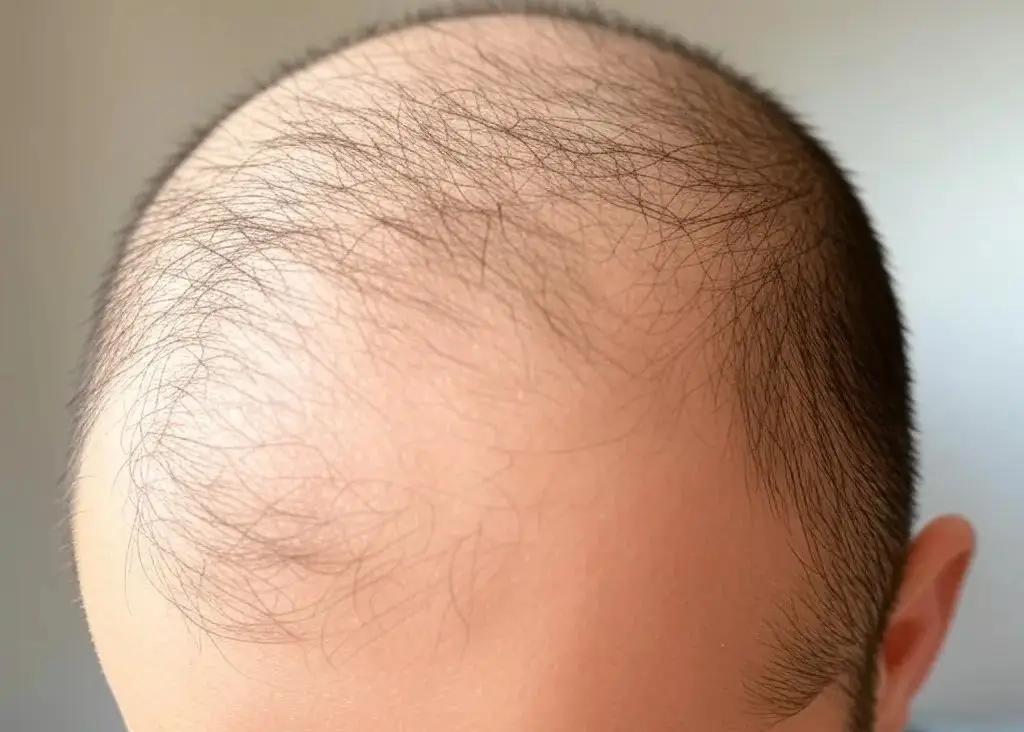Hair Loss: A Comprehensive Guide to Causes
Arman Karagah

Hair loss is one of the most common beauty concerns among individuals. It can have profound effects on self-confidence and quality of life. There are numerous reasons for hair loss, including genetics, nutrition, stress, hormonal changes, and illnesses. In this article, we’ll provide a comprehensive look at hair loss, its types, and effective treatment options.
Causes of Hair Loss
Hair loss can have various causes. Some of these include genetics, nutrient deficiencies, stress, and environmental factors. Let’s examine each of these factors in detail.
1. Genetics and Hair Loss
Genetics is one of the most significant factors contributing to hair loss. If one of your parents or family members has experienced hair loss, you are likely predisposed to the condition. Genetic hair loss is commonly referred to as androgenetic alopecia, known as male pattern baldness in men and female pattern hair loss in women.
- Why Does Genetics Play a Role?
Genes associated with sensitivity to the hormone dihydrotestosterone (DHT) can cause hair follicles to shrink. Over time, this process leads to reduced hair growth. - Signs:
- In men, hair loss often begins at the front and crown of the head.
- In women, hair generally becomes thinner, particularly at the top of the head.
Recommendation:
Using DHT-blocking products or consulting a dermatologist for an accurate diagnosis can be helpful.
2. Poor Nutrition
Healthy nutrition plays a vital role in the growth and maintenance of hair. Hair follicles require nutrients to produce strands of hair. Deficiency in the following nutrients may lead to hair loss:
- Iron:
A primary cause of anemia, which weakens hair roots. - Biotin (Vitamin B7):
A lack of this vitamin can cause brittle hair. - Zinc:
This mineral helps regulate the production of natural oils on the scalp. - Proteins:
Hair strands are made of keratin, a type of protein. Protein deficiency can halt hair growth.
Practical Tip:
Adding foods like eggs, lean meat, nuts, and green leafy vegetables to your diet can help.
3. Stress and Mental Health
Stress can be a key contributor to hair loss. Conditions such as telogen effluvium are often triggered by severe stress or sudden life changes. In such cases, a large number of hairs enter the resting phase, leading to rapid hair shedding.
- Stress Triggers:
- Work-related pressures
- Financial worries
- Life changes such as pregnancy or illness
- How Does Stress Affect Hair?
Stress increases the production of hormones like cortisol, which can damage hair follicles.
Suggestions:
Breathing exercises, meditation, and physical activities like yoga can help reduce stress levels.
Types of Hair Loss
Hair loss is classified into various types, each with its own causes and symptoms. Let’s explore three common types of hair loss.
1. Alopecia Areata
This type of hair loss, which occurs in patches, is an autoimmune condition. In this condition, the immune system mistakenly attacks hair follicles, causing hair loss in specific areas of the scalp or body.
- Symptoms:
- Sudden loss of hair in round or oval patches.
- May not be accompanied by itching or pain.
- Treatment:
- Use of corticosteroids.
- Topical treatments like minoxidil.
2. Androgenetic Alopecia
This is the most common type of hair loss among men and women. It is primarily caused by hormonal changes and genetics.
- Characteristics:
- In men, hair loss starts at the temples and crown of the head.
- In women, hair becomes thinner across the entire scalp.
- Treatment:
- Oral medications like finasteride.
- Medical procedures such as PRP (Platelet-Rich Plasma) therapy or hair transplants.
3. Telogen Effluvium
This type of hair loss is typically temporary and occurs due to stressors such as surgery, illness, or hormonal changes.
- Characteristics:
- Hair loss is diffuse across the scalp.
- Hair enters the resting phase.
- Treatment:
- Returning to a healthy lifestyle.
- Taking nutritional supplements.
Common Treatments for Hair Loss
There are various treatment options available for combating hair loss, depending on the type and severity of the condition.
1. Medicinal Treatments
Medications like minoxidil and finasteride are used to reduce hair loss and promote regrowth.
2. Lifestyle Changes
- Following a balanced diet.
- Reducing stress levels.
- Using strengthening shampoos.
3. Hair Transplants
This method is suitable for individuals experiencing severe and permanent hair loss. Hair transplants usually provide long-lasting results.
Preventing Hair Loss
To prevent hair loss, consider the following methods:
- Consume foods rich in vitamins and minerals.
- Avoid overusing chemical-based hair products.
- Use natural oils like argan or coconut oil for hair care.
Frequently Asked Questions
1. Is hair loss normal for everyone?
Yes, losing 50 to 100 hairs per day is considered normal.
2. Does washing hair daily cause hair loss?
No, but using unsuitable shampoos may damage hair.
Conclusion
Hair loss can occur for various reasons, but identifying the cause and choosing the right treatment can effectively manage the condition. Healthy hair requires consistent care and a balanced lifestyle.


